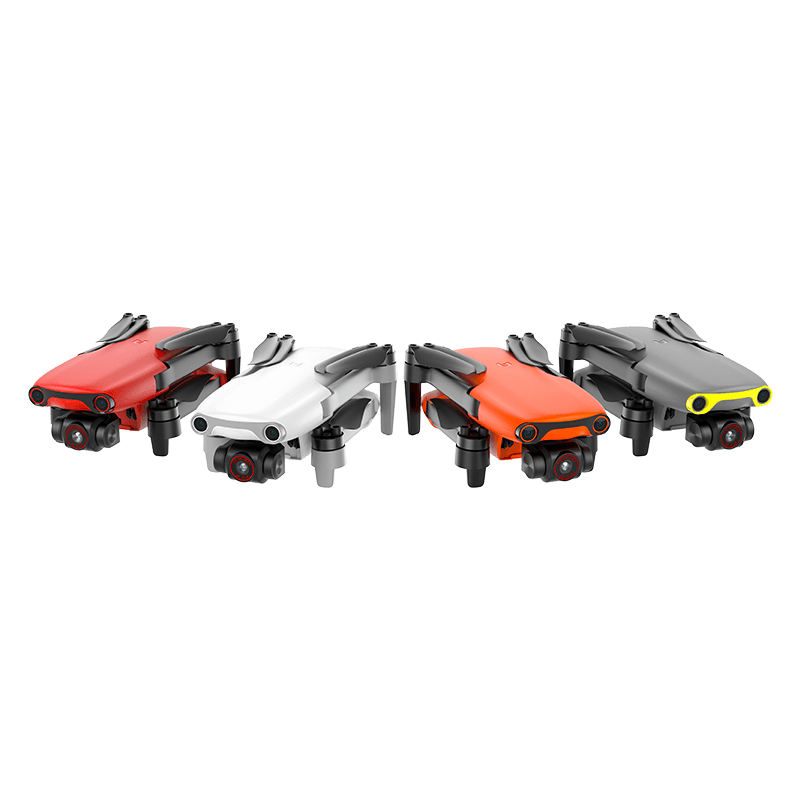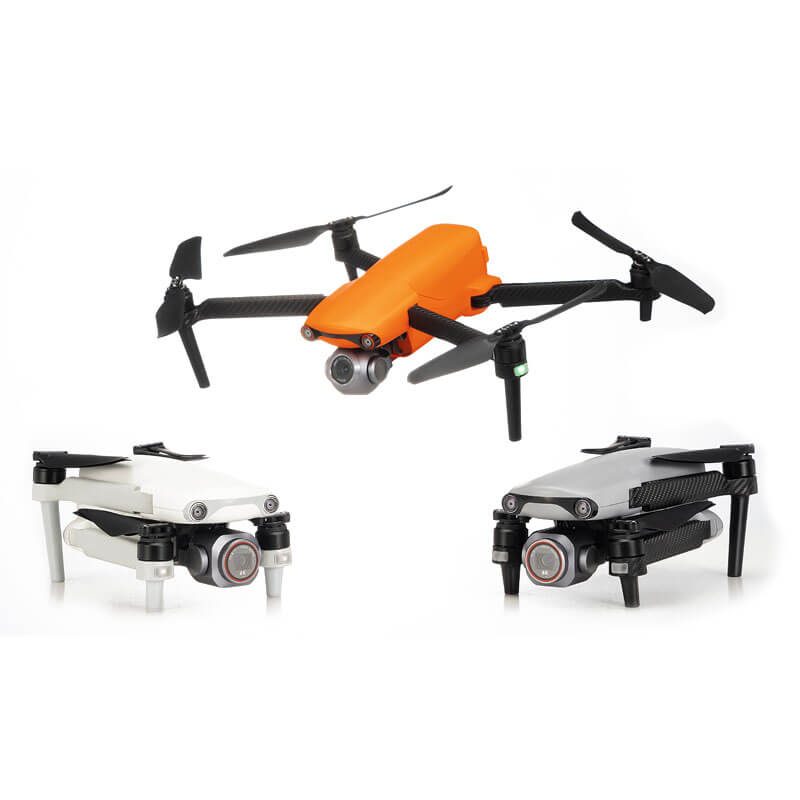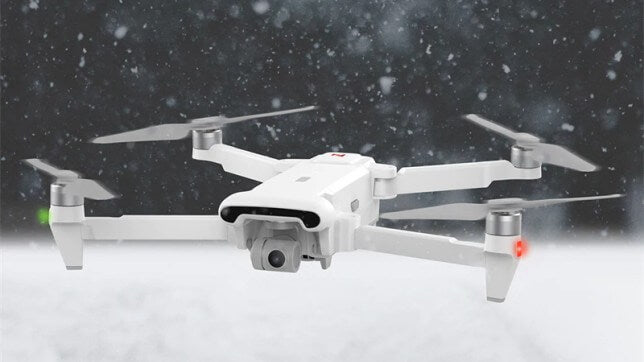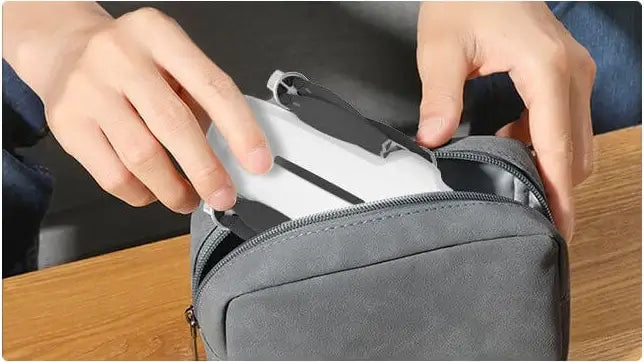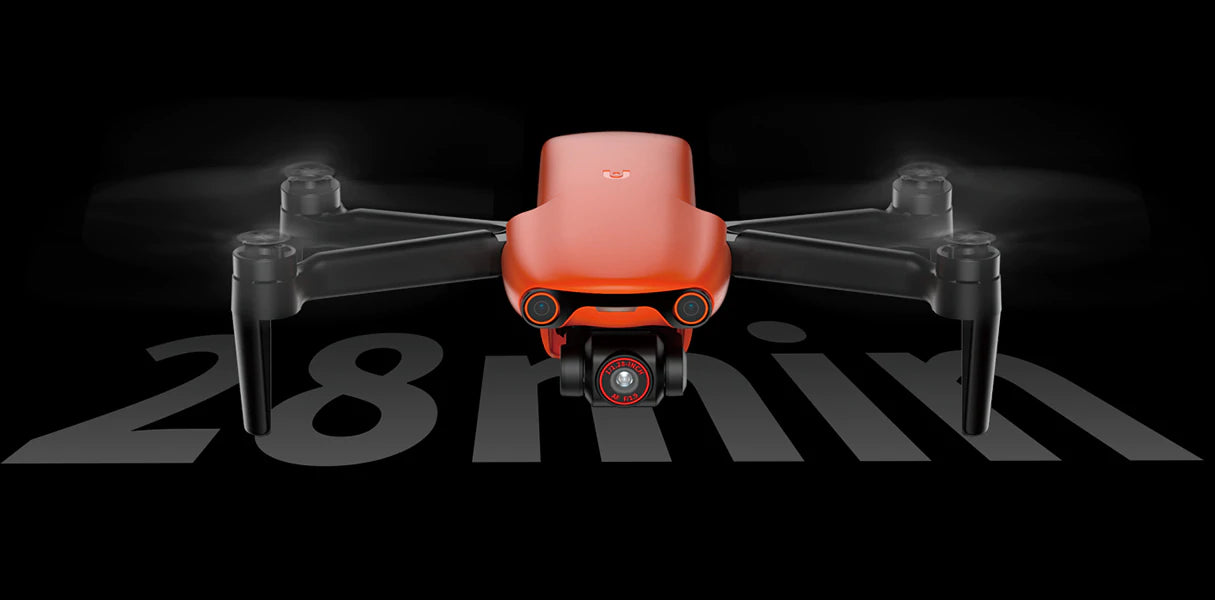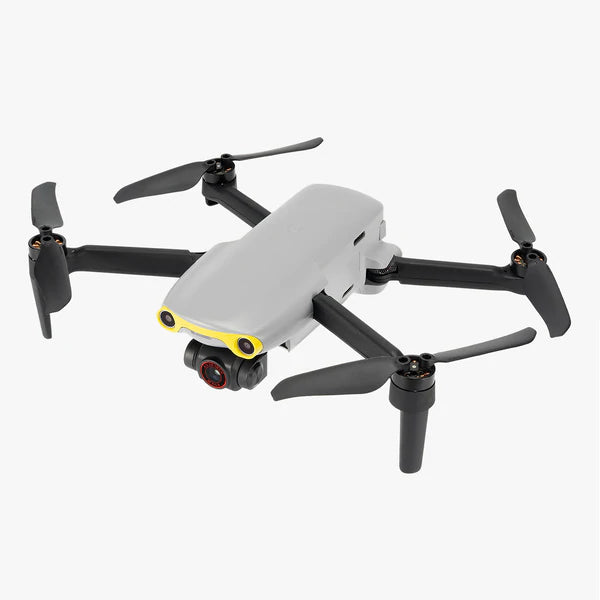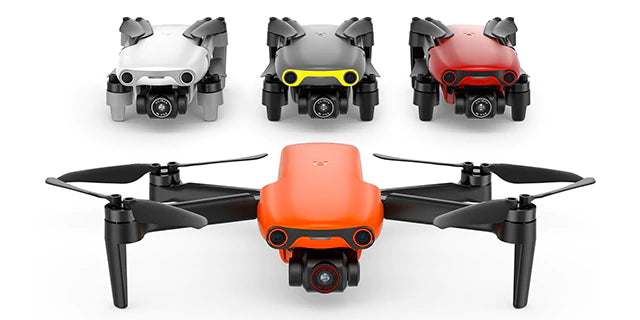Drones allow you to take to the skies in a first-person view. We rated the Autel Evo Nano four stars in our drone training flight review, calling it a "great introduction to the thrills of immersive first-person flying" and featured in our best drone guide also has a place in it.
Especially in the face of the huge list of consumer drones on the market today. DJI drones are well-built and well-designed. still dominate the market. But more importantly, the company has pushed the boundaries of cameras on its drones. DJI drones are also known for their rock-solid reliability, which is critical for aircraft that are not physically supposed to fly at all.
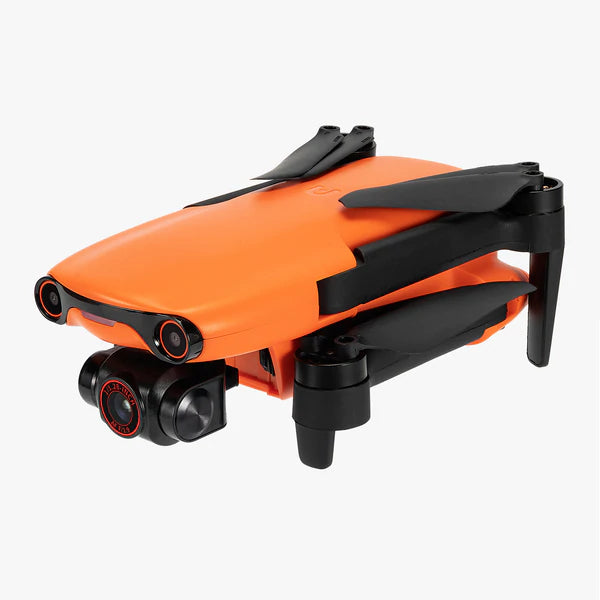
Important Nano+ drone camera specs and gimbal stability
I reviewed every drone in DJI's roster, all the way back to its first Phantom Vision 2. I also reviewed many of its direct competitors -- Parrot, 3DR, PowerEgg, GoPro, etc. -- which all fell into place because they couldn't compete with DJI's expertise in drone design, manufacturing, and marketing. Sure, they all fly well, but for me they ended up being let down by the generally poor quality of their respective cameras. Let's face it, the camera and its stabilized gimbal are arguably the two most important parts on any drone designed for shooting video and stills.
If anyone is going to successfully compete with DJI, they have to make drones and cameras that are just as good or even better. Well, I'm happy to say that at Autel, DJI finally has a very good opponent to contend with -- and that can only be a good thing for consumers.
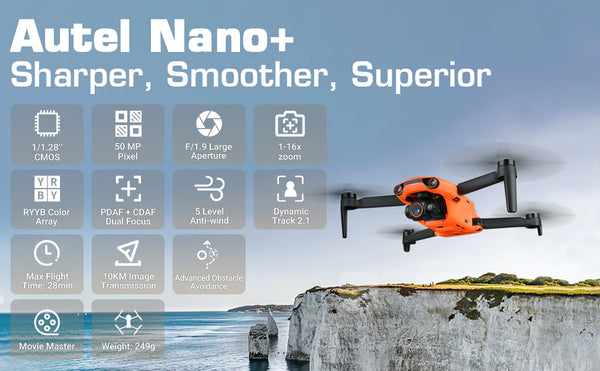
Autel Evo Nano camera is very expressive
The reason we've also included the DJI Mavic Air 2 in this comparison feature is because the Autel Evo Nano's camera and onboard specs are closer to the DJI Mavic Air 2 than the DJI Mini 2. So, without wasting any more time, let's see if we can dig into all three models and come up with an overall winner.
With a 1/2-inch sensor, the Autel Evo Nano leads the pack in drones of this size, especially when you consider that the larger and heavier DJI Mavic Air 2 has the same size sensor (both drones both produce 48-megapixel images).
In stark contrast, the DJI Mini 2 has a much smaller 1/2.3-inch sensor that simply can't match it in terms of sharpness and low-light photography and photography. The three drones share the same maximum aperture of f/2.8.
While not part of this comparison, the Evo Nano's stablemate Autel Evo Nano+ has a larger 1/1.28-inch sensor with a groundbreaking aperture of just f/1.9. In my Autel Evo Nano Plus drone review, I was blown away by the shooting capabilities of this drone, which is on another level compared to the Nano.
But I digress. Most casual pilots will be very happy with the picture quality of the Mini 2, but the Leica lens on the Evo Nano will further improve clarity and overall resolution. The Evo Nano's image quality is also easily on par with the DJI Mavic Air 2, but it's not quite there compared to the newer DJI Air 2S, which remains our current favorite among cinematographers.
The high resolution of the Autel Evo Nano camera wins applause
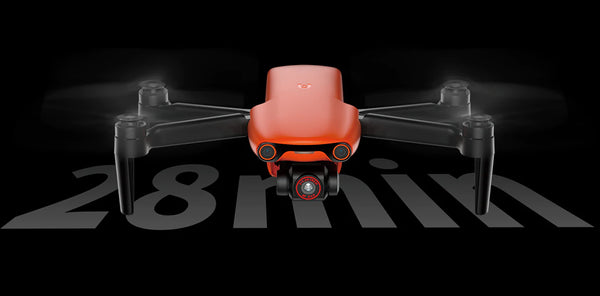
From a specs standpoint, the Autel Evo Nano shoots video at a variety of high resolutions -- 4K at 30 fps, 2.7K at 30 fps, and 1080p at 60 fps. The Mini 2, on the other hand, can also shoot 4K at up to 30fps, but its 2.7K setting is capable of shooting at up to 60fps. Note that this is only useful if you want to slow down the footage in post-production. By comparison, the DJI Mavic Air 2 beats them both at 4K at up to 60fps and 1080p at up to 240fps. All three models feature a three-axis gimbal for solid image stabilization.
But when you factor in size, weight, licensing considerations, and price, the Autel Evo Nano is still the clear winner when it comes to shooting video and shooting stills.
At the same time, while GoPros are impressive cameras, they can't solve every problem. This includes low light. While you can capture stunning images, you won't automatically get images of this quality in any lighting condition. So why not consider investing in a drone product with HD camera specs?
The GoPro is designed for shooting outdoors, so shooting indoor footage in artificial light won't work well. They will also have difficulty capturing good shots in very dim or very bright lighting conditions and in situations where there is a lot of contrast in the same frame (i.e. deep shadow areas and bright sunlight). For best results, stick to the so-called golden hour after dawn or before sunset. You can also help with this situation by adding GoPro's Light mod.
The Autel Evo Nano also performs well in night mode, an absolutely stunning 4K camera that will be a good investment for you.

